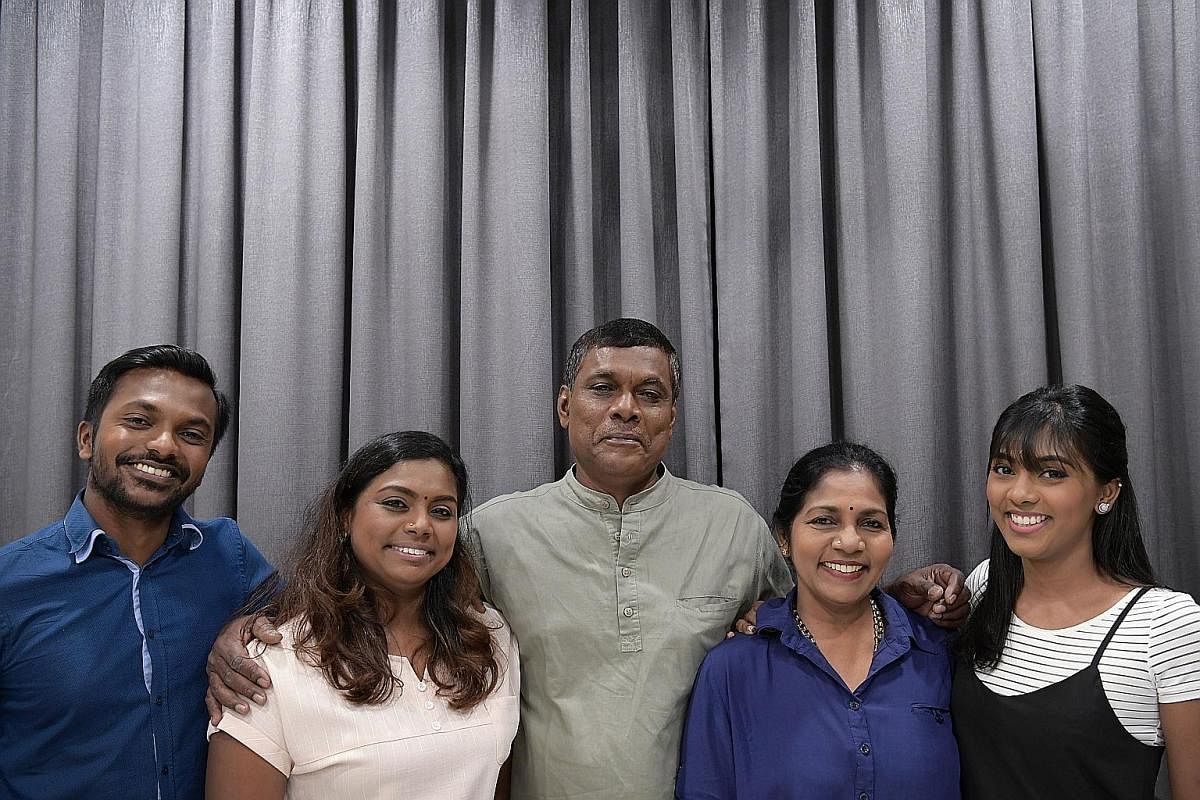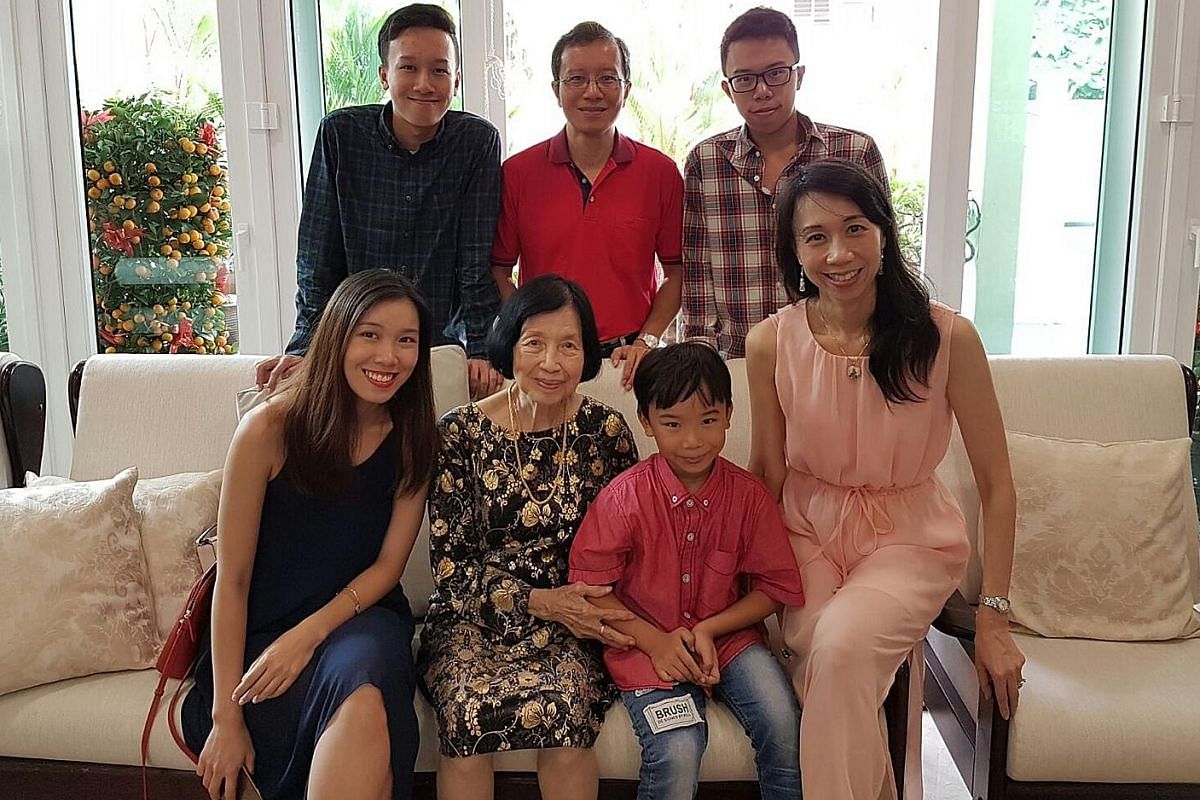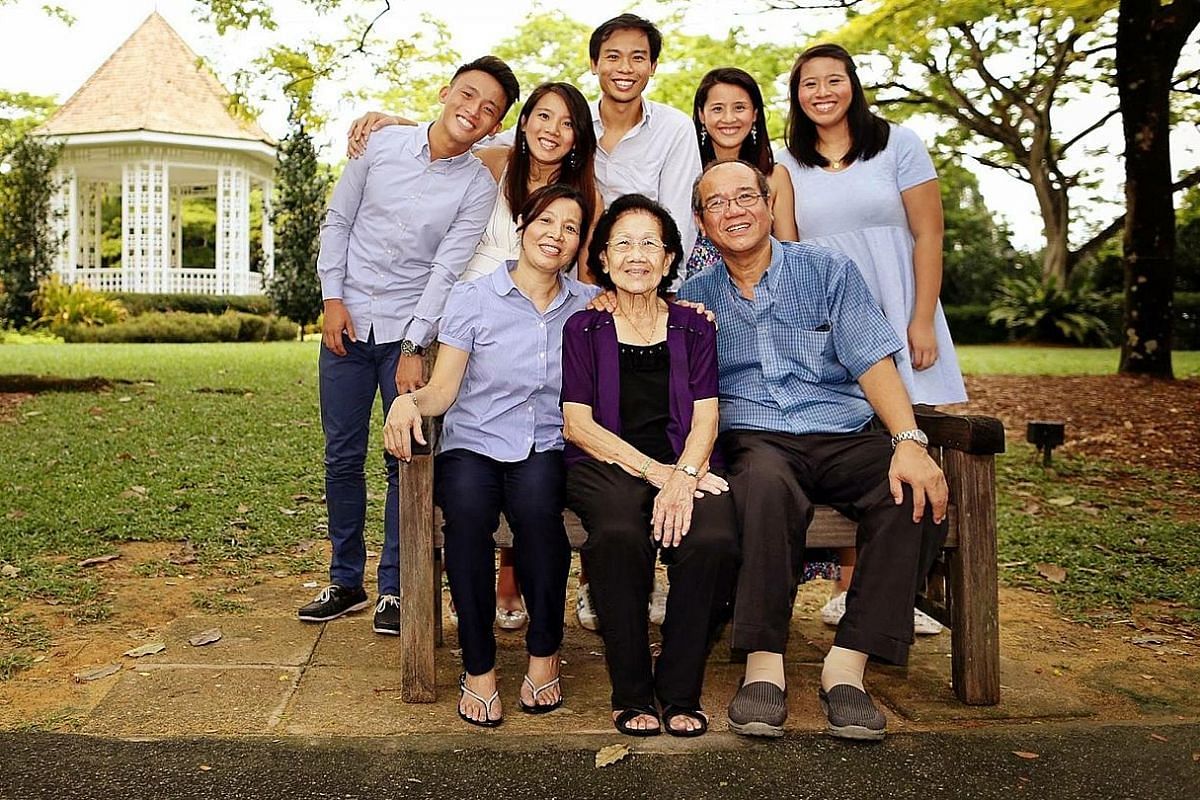When big sister is like a second mum
Having a large age gap between siblings has its benefits, say families The Sunday Times spoke to

Six-year-old Dev Devi is still in kindergarten, but one of his three older sisters is already a working adult.
The age gap between him, the youngest child in the family, and his eldest sibling, a 24-year-old university student, is 18 years.
His second sister, Pooja, 21, is an early childhood educator, while his youngest sister is a 19-year-old university student.
Ms Pooja Devi says her parents, both 48, had planned to have Dev as they really wanted a boy.
Their mother, a housewife, was 42 years old when she gave birth to Dev. Her husband is a manager in a textile firm.
When Dev was born, things changed, says Ms Devi.
"The three of us sisters were teenagers then. Suddenly, we went from worrying about ourselves - what to wear, what to eat - to worrying about whether our brother Dev was hungry and if he needed a change of clothes," she says.
"It was as though we became mothers overnight."
A large age gap between children changes the family dynamics, say families whom The Sunday Times spoke to, though it is not necessarily a bad thing.
The larger gap means that elder siblings are able to pitch in and lighten their parents' load when the new baby arrives. Later on, these elder siblings would also find themselves helping the younger ones through their various life stages and vice versa.

General practitioner Clara Chew-Lau, 50, recalls being "in a bit of a shock" when she found out she was pregnant with her fourth child at the age of 43.
"It was not planned. I just got pregnant," she says with a laugh.
She had concerns that her age and health would have a negative impact on the foetus, as she was on medication then. She also had doubts about being able to keep up with a young child because of her age and could not imagine "doing this all over again".
Still, not keeping the baby was not an option because of the family's Catholic beliefs, she says. "Even if this child were to have special needs, I would have had him."
Her husband Terence, 53, is a manager in a re-insurance company.
Seven years ago, her son Gabriel was born. He is 16 years younger than his eldest sibling Isabel, 23, who has just graduated from university. He also has two brothers aged 21 and 19, who are currently national servicemen.
Despite being plagued by exhaustion in Gabriel's early years, Mrs Chew-Lau was thankful for her three older children, who helped to care for their kid brother.
In particular, she says Isabel was like a "second mother" to Gabriel. When he was a baby, she helped change his diapers, feed and babysit him. As he grew older, she helped send him to school and took him to parks, playgrounds and libraries.
Public relations manager Tarin Teo, 27, remembers having "ice cream and fast-food dates" with her 39-year-old sister, Xiao Hui, in their younger days. When her sister, an auditor, started work, Ms Teo was still in primary school.
She recalls tagging along with her sister on dates with the latter's then boyfriend. "I cannot remember why she was willing to take me along. Perhaps I would cry and ask to go along," she says.
They have a brother, a 31-year- old civil servant. Their parents are divorced and their mother, 59, is a housewife.
The large age gap between her and her sister turned out to be a boon, especially during her teenage years. She says: "I was then trying to find my identity and my mother was experiencing menopause. Sometimes, we could not see eye to eye and I got frustrated with my mother."
That was when her elder sister would step in. "During those years, my sister was the bridge between myself and my mother," Ms Teo says.
For younger siblings, having significantly older siblings is helpful because the latter are likely to enter the workforce first and can help alleviate the family's financial burden.
Says Ms Teo: "It takes some pressure off us younger ones. I don't have to choose a job where the top consideration is whether it allows me to financially contribute to the family, since my siblings are already doing so."
While they help their younger siblings to navigate teenage angst and the challenges of early adulthood, older siblings say there comes a time when they may need their younger siblings' help.
For instance, to take care of their children.

Ms Selene Oh, 33, is the second of five siblings whose ages range from 22 to 36. She used to help her parents, who are in their early 60s and run an electronics shop, take care of her two youngest siblings.
Now, Ms Oh, a teacher in an early-childhood enrichment centre, calls on her younger sisters, aged 30 and 23, to help care for her six- and two-year-old daughters on days when she is bogged down at work.
"I know they will be able to help my children keep to their routines, discipline them, and I trust that they will not spoil them," she says.
If there is one thing elder siblings are worried about, it is that their kid sibling will turn out spoilt.
Ms Devi says her brother Dev is already "pampered". As the "baby of the family", the boy is used to getting the attention of the others in the family.
"He is very impatient and will start crying and throwing objects when he does not get what he wants," she says.
The family has learnt not to always give in to him.
Ms Isabel Chew-Lau, though, finds it hard to say no to her little brother Gabriel. "I try to be strict, but he knows he's cute."
For instance, when she is teaching him spelling but he is not interested and begins to whine, she will scold him. But he makes it hard for her to stay angry with him or continue the lesson by nuzzling his head against her shoulder and kissing her arm.
Such concerns aside, elder siblings and parents whom The Sunday Times spoke to are in agreement that having a child a decade or more younger than their eldest child has bonded the family and brought joy to their lives.
Ms Chew-Lau says Gabriel's antics often make the family laugh and her mother adds that the family has visited the zoo and other attractions in Singapore more often in recent years because of him.
And if not for Dev, Ms Devi says, she and her three sisters would "just be doing our own thing".
"Because of Dev, each of us makes the effort to come home as early as possible to spend time with him," she says.
For mother-of-three Paru Vellu, 60, the 11-year age difference between her oldest and youngest children has delayed the onset of the empty nest syndrome.
The public servant's youngest daughter Jamuna, 26, has just graduated from university and is the only child still living with her and her husband, 63, who runs a consultancy. Their other children - public relations manager Deva, 34, and teacher Padma, 37 - are married with children.
"Without Jamuna, our home would be much quieter by now. When she gets married and moves out, I wonder how things will be like," she muses.
Join ST's Telegram channel and get the latest breaking news delivered to you.
A version of this article appeared in the print edition of The Sunday Times on September 17, 2017, with the headline When big sister is like a second mum. Subscribe

